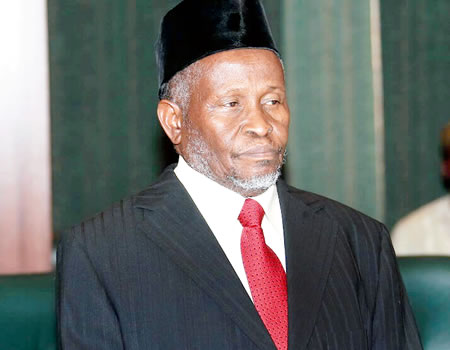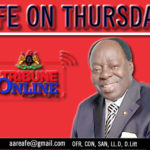There have been strident calls for the establishment of constitutional courts to handle election matters in the country, KUNLE ODEREMI writes on the issue against the backdrop of the ongoing role of a similar court in Malawi after its 2019 presidential election.
FIRST, it was Kenya that broke the ice, when the Supreme Court in the East African country order a fresh rerun of a presidential poll on grounds of electoral malfeasance. Now, Malawi has become the second country on the continent with a similar record following a disputed presidential poll held in May 2019. A constitutional court in Lilongwe recently ordered a fresh poll latest by July this year after it voided the election of incumbent Peter Mutharika because of electoral irregularities. Opposition parties headed for the Constitutional Court having been dissatisfied with the declaration by the Malawian Electoral Commission (MEC) of the incumbent as bring duly re-elected based on the outcome of the May 21, 2019 general election. On February 3, 2020, the court in a 500-page ruling, directed MEC to conduct the fresh poll within 150 days. Seven candidates squared it up at the first election, in which the MEC claimed that Mutharika won 38 percent of the vote, while the leading opposition candidate, Lazarus Chakwera, received 35 percent, just as Mutharika’s former vice president , Saulos Chilima (of the United Transformation Movement) got 20 per cent of the votes, while the other contenders shared the remaining votes. The leading opposition candidates fought gallantly to compel the Malawian electoral body under chairperson of Jane Ansah, to recount the votes but to no avail. The duo of Chakwera and Chilima also pressured the High Court to order a recount but their pleas failed, thus their decision to file a petition before the Malawi’s Constitutional Court seeking a review of the election s on the grounds of electoral irregularities.
In Nigeria, the controversy that trailed the election that brought the late President Umaru Musa Yar’Adua was almost unprecedented. Not minding being the main beneficiary, he acknowledged the widespread irregularities and set up the necessary machinery to avert such national embarrassment in the future, thus the setting up of the Justice Mohammed Uwais Electoral reform Committee in August 2007. Members of the 22-man committee were drawn from the academia, civil society organisations, professional groups and the public service and the government accepted more than 90 per cent of its recommendations. One of the recommendation was for constitutional amendments that would insulate the INEC from the political influences of the executive arm of government in terms of its composition and funding. The power to appoint INEC Board was to be transferred from the president to the National Judicial Council (NJC) while its funding was to be a first line charge on the Consolidated Revenue of the Federation. Election petition was to have time limit even as a Special Electoral Offences Commission was to be set up to try electoral offenders.
APC crisis: Plot to announce Ajimobi acting chairman thickens
While the clamour for the implementation persisted, the present federal administration initiated its own process of electoral reform. The 24-man committee with a former president of the Senate ken Nnamani as chairman, was given the mandate of coming up with a reform agenda capable ofguaranteeing free and fair elections. A statement by the Minister of Justice and Attorney General of the Federation, Abubakar Malami, charged the committee “to review the electoral environment, laws, and experiences from recent elections conducted in Nigeria and make recommendations to strengthen and achieve the conduct of free and fair elections…”
Former Vice President Atiku Abubakar equally called for the implementation of the Uwais electoral reform report because of his belief that its implementation was crucial to guarantee for free and fair elections in the country. In a statement he personally signed, he said: “I have been pondering on the question, how Nigeria can have credible elections. Our electoral system needs not just to be brought up to date, by the acceptance of the amendments to the Electoral Act passed by the eight National Assembly, we also need to be up to tomorrow, by taking steps today to ensure that the lapses that made it possible for the 2019 elections to be manipulated or rigged are addressed. One way of addressing these lapses is to implement the salient recommendations of the National Electoral Reform Committee (NERC) headed by former Chief Justice of the Federation, Justice Mohammed Lawal Uwais.” He added: “The second is the creation of Electoral Crimes Commission. One of such recommendations, which will enhance the independence of the supposedly Independent National Electoral Commission (INEC), is the recommendation that the power to appoint the chairman and board of the INEC be taken away from the President and given to the judiciary.”
Senator Nnamani is also among prominent persons that want the adoption of the recommendations of the Uwais report in order to reform the nation’s electoral system. Speaking on the theme: ‘Towards a More Credible, Fair and Free Elections in Nigeria,’ at the 3rd Oronto Douglas Memorial Dialogue held in Abuja, he said the report was important to the quest for credible polls in the country. “It is obvious that the Uwais report represents a high point in the search for an electoral system that will suit Nigeria’s peculiar circumstances. The eminent members of that committee proposed many innovations that could restore credibility and fairness to our electoral system. Unfortunately, many of these innovative proposals were not implemented,” he said.
The outcry over the lukewarm attitude of the authorities towards the Uwais report is not limited to Nigerians. Foreign election observers are equally concerned. The International Republican Institute (IRI) and the National Democratic Institute (NDI) want the authorities to implement the report. Senior Associate and Regional Director (NDI), Dr Chris Fomunyoh, said the call became imperative in order to create appropriate institutions to assist in elections.
“We urge the government of Nigeria to expedite the adoption of comprehensive electoral reforms in order to lay the groundwork for an improved electoral framework. Implement fully and expeditiously the recommendations of Nigerian-led reforms initiatives such as the Uwais 2008 and the Nnamani Committee 2017. This is to create appropriate institutions to oversee political parties and prosecute electoral offences, responsibilities that currently impede INEC’s focus on election administration,’’ he said.
Wanted: Constitutional Court
Many professionals, including legal luminaries have been in the forefront of the implementation of the Uwais report to address most of the challenges in the conduct of elections in the country. Specifically, the Body of Senior Advocates of Nigeria called for the establishment of constitutional courts, so as to reduce the workload on the existing ones in the country. For instance, at a valedictory session held in honour of retired Chief Judge of the Federal High Court, Adamu Abdu-Kafarati, in September 2019, a Senior Advocate of Nigeria, Adegboyega Awomolo, who spoke on behalf of the body, said such courts would effectively handle pre and post-election cases so that other courts can adjudicate in other civil and criminal cases. He expressed regrets over the earlier proposal for the courts “that was struck down due to lack of foresight.” According to him, the issue of the establishment of constitutional courts must be revisited and reintegrated into the constitution of the country in compliance with Section 250.
The eminent lawyer said all political matters, including pre and post-election matters and petitions, would effectively be handled by such courts, “while all appeals from the court will terminate in the Court of Appeal.” He said each state would then have its own Court of Appeal and “that only constitutional matters will go to the Supreme Court.” He said with the revelation by the Federal High Court that over 16,000 cases were carried over from 2018 to 2019 legal year, with many of the cases filed over four years ago, “the trend must not be allowed any longer because it can lead to denial of justice. Decongestion in all the courts has become a great burden, a source of concern and embarrassment. In the Supreme Court, only political cases are being heard on a daily basis,” he said. He called on “the Bar and the Bench to push for a constitutional amendment to back up the establishment of the suggested constitutional courts.”






